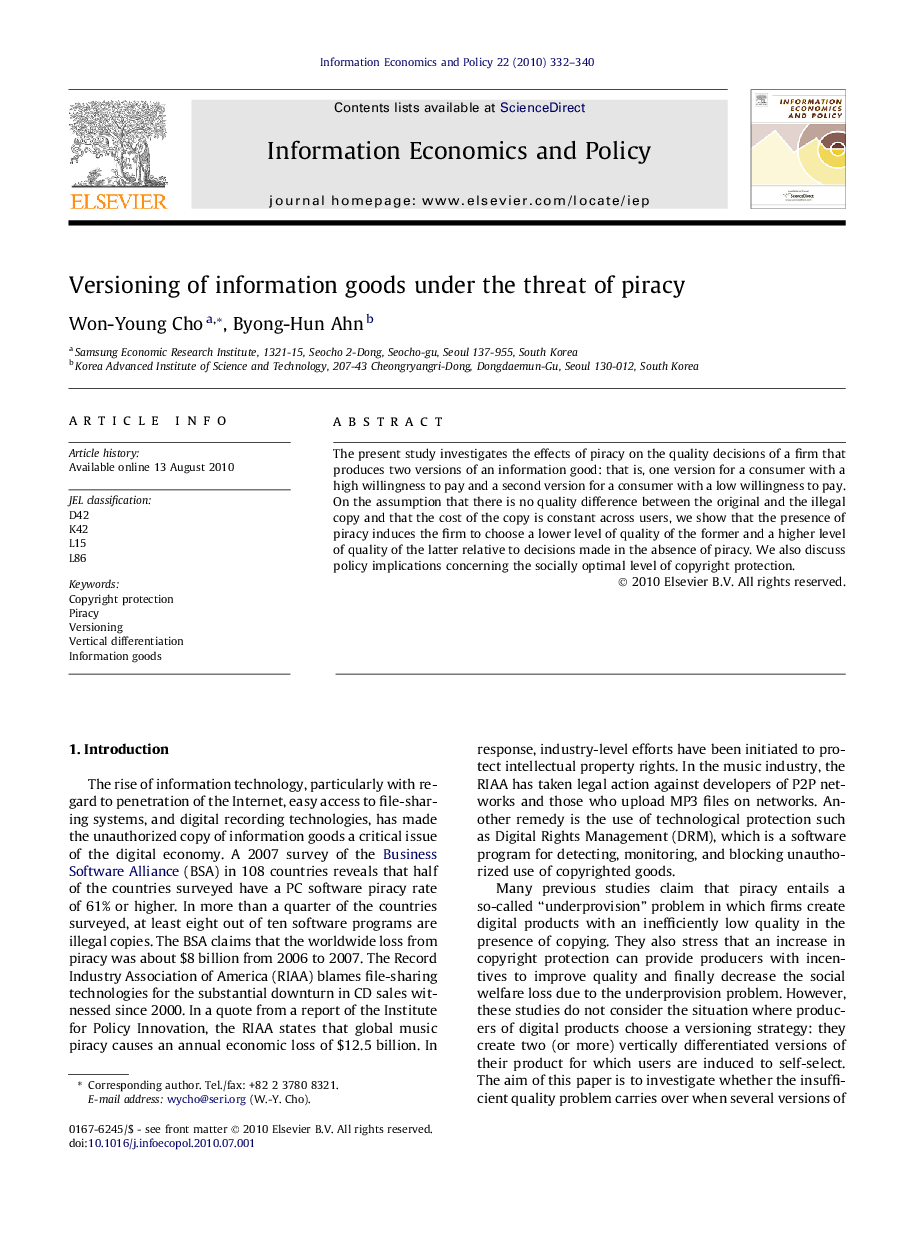| Article ID | Journal | Published Year | Pages | File Type |
|---|---|---|---|---|
| 5075818 | Information Economics and Policy | 2010 | 9 Pages |
Abstract
The present study investigates the effects of piracy on the quality decisions of a firm that produces two versions of an information good: that is, one version for a consumer with a high willingness to pay and a second version for a consumer with a low willingness to pay. On the assumption that there is no quality difference between the original and the illegal copy and that the cost of the copy is constant across users, we show that the presence of piracy induces the firm to choose a lower level of quality of the former and a higher level of quality of the latter relative to decisions made in the absence of piracy. We also discuss policy implications concerning the socially optimal level of copyright protection.
Related Topics
Social Sciences and Humanities
Business, Management and Accounting
Management of Technology and Innovation
Authors
Won-Young Cho, Byong-Hun Ahn,
